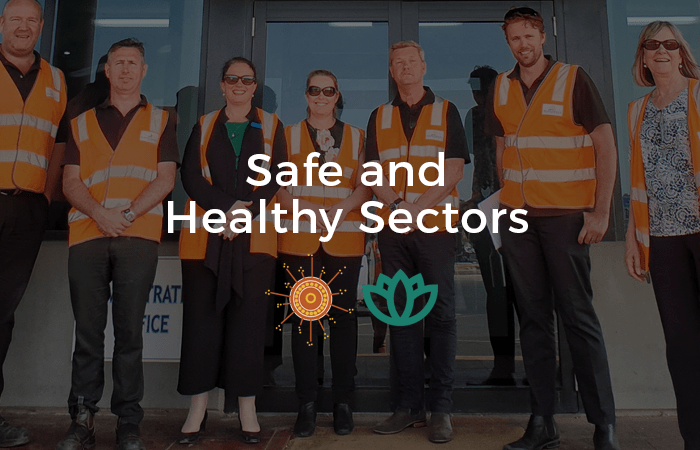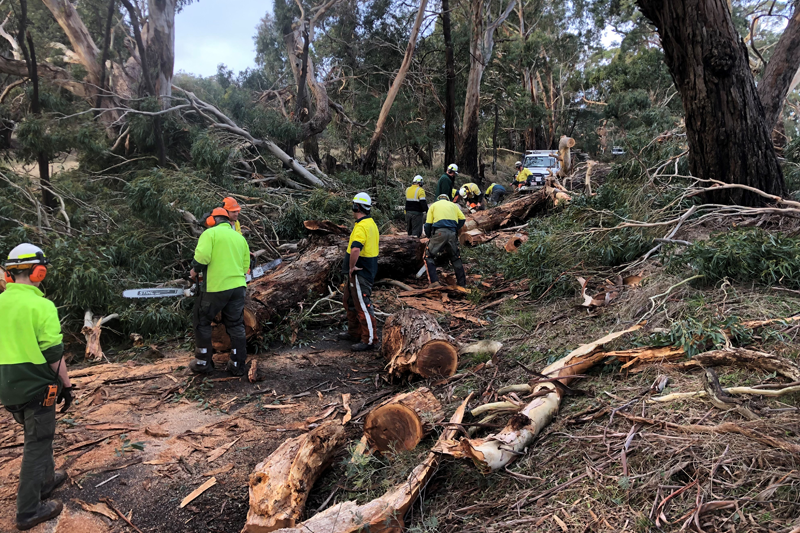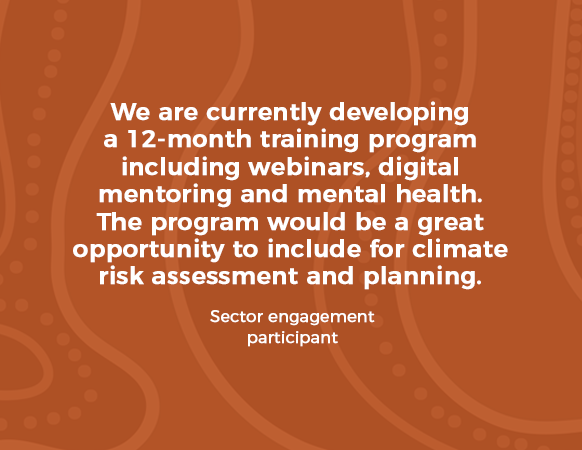

The health and safety of local workforces is protected
Objectives to achieve goal:
Improved worker safety outcomes from direct impacts from extreme weather and climate impacts
Climate change will create a situation where workers will be increasingly exposed to heatwaves, storms, and bushfires.
Extreme weather can have different effects and require specific planning for various parts of the workplace. This planning can be difficult for outdoor, remote or isolated workplaces.
Extreme weather response planning can also be complex if a business needs to cover a diversity of workers requirements, abilities and situations.
Like any emergency, workplaces need informative communication before and during events. For extreme weather response, information needs to be coupled with appropriate emergency warning systems.

Priority Actions
Establish local support programs to assist businesses in creating OH&S policies and emergency plans for extreme weather
Support the development of technology that can inform and warn about impacts and their status in real time so business can manage the risks effectively
Improved worker health outcomes from indirect environmental changes
Climate change may affect workers health and wellbeing through the changes in the environment. These changes could include worsening air quality, dislocation from emergencies and changes in the spread of infectious diseases.
The impact of increased risk of temporary or permanent dislocation with more extreme weather events will impact workers. The COVID pandemic and Black Summer fires have shown how challenging some health impacts can be to address.
Our region is well aware of the health impact of drought on workers in agriculture and the worker that the agriculture sector supports. With levels of drought projected to increase, risks of associated mental health impacts are likely to increase.


Priority Actions
Establish business support services to assist in the planning and preparation of safe workplaces and flexible working for a future climate
Develop better mental health programs to manage increased climate shocks such as droughts, fire, flood, loss of ecosystems and assets
We acknowledge and respect Victorian Traditional Owners as the original custodians of Victoria’s land and waters, their unique ability to care for Country and deep spiritual connection to it. We honour Elders past and present whose knowledge and wisdom has ensured the continuation of culture and traditional practices. We are committed to enabling self-determination for all Aboriginal people and aim to work closely with the Aboriginal community to drive action and improve outcomes especially in the context of a changing climate.